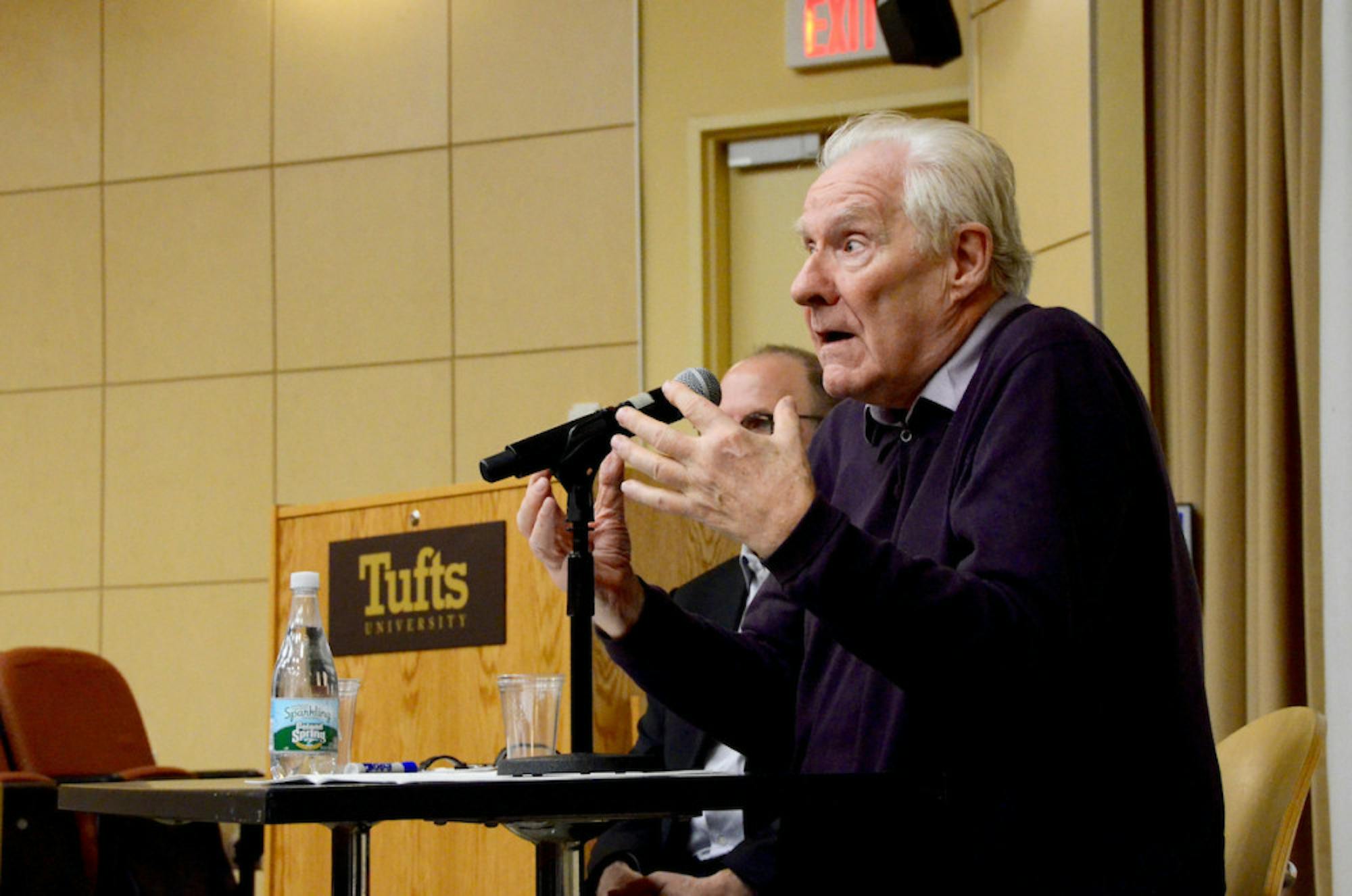French philosopher Alain Badiou spoke about President-elect Donald Trump's election and theorized about what that means for the state of democracy and capitalism during a lecture last night in the ASEAN Auditorium.
Over 120 people attended the event, which was co-sponsored by the Department of English, the Center for the Humanities at Tufts and the Toupin-Bolwell Fund.
During the talk, Badiou acknowledged that many people are afraid and anxious at the prospect of Trump's presidency. However, he chose to diagnose the reasons for Trump's victory through three lenses: the failures of capitalism, the current state of democracy and the path forward for those on the political left.
“Trump is like a spot on the face of the contemporary political world," Badiou said. "Trump must be interpreted as an ugly symptom of the global situation."
Badiou contended that the capitalistic system has created tremendous and ever-growing economic inequality. Additionally, he said that it has stratified the population into groups of employers, consumers and peasants, along with leaving out a large group of isolated people who are looking for a place to fit into the system.
Those people who are looking for a place, he said, cannot be helped by capitalism because the system is fundamentally limited and motivated by profit. As evidence, he cited that people with jobs are working longer hours while the unemployed and isolated are not being given any work at all.
"We have a surplus within the existing humanity today, which is people without any destination, without any reason to exist from the point of view of globalized capitalism itself," Badiou said.
In addition to those structural issues, Badiou added that many people currently see capitalism as the only possible system of societal organization. He insisted that the alternatives, especially communism, must be discussed as possibilities.
Badiou concluded that the current political system is facing tensions both from the left and the right. He explained that the democratic system is constrained to the center of the political spectrum, with very little room for far left or far right viewpoints. Thus, he said that the center is united by the ideology of capitalism.
Badiou said that both the centrist left and the centrist right are currently facing tensions from their respective sides because many people are not satisfied with the center. He defined Trump as the fringe of the right and Secretary Hillary Clinton as more of a centrist. For that reason, he claimed that the 2016 election was asymmetrical and that Trump caused a contradiction of the system, causing Clinton to lose.
"The fundamental symptom today is the impossibility of the two big parties to continue … their mixture of contradiction and collaboration,” he said.
Badiou identified four problems that define the current political crisis worldwide: the brutality caused by capitalism, the decomposition of the political elite, the population's responses to those problems and the perceived lack of any other strategy.
Finally, Badiou called for people on the political left around the world to try to create a new system rather than modify the current capitalistic system. He referred to the new system as theoretically "communism," although he acknowledged that the term has been historically difficult.
Badiou laid out four principles that people on the left can use to define the new system: rejection of the need for private property and inequality, rejection of the separation between manual labor and intellectual work, rejection of the idea that racial division is inevitable and rejection of the need for states with separated power to exist.
Badiou said that Trump's victory should be treated as an opportunity to revolt against the current system using the principles that he outlined. He said that the revolt will occur outside of the current system and that it can be through an alliance of intellectuals, young people and poor workers.
"The system cannot propose a place for novelty, so we must create something outside the system as it is," he said.
Alain Baidou responds to Trump's election, encourages revolt against current system






